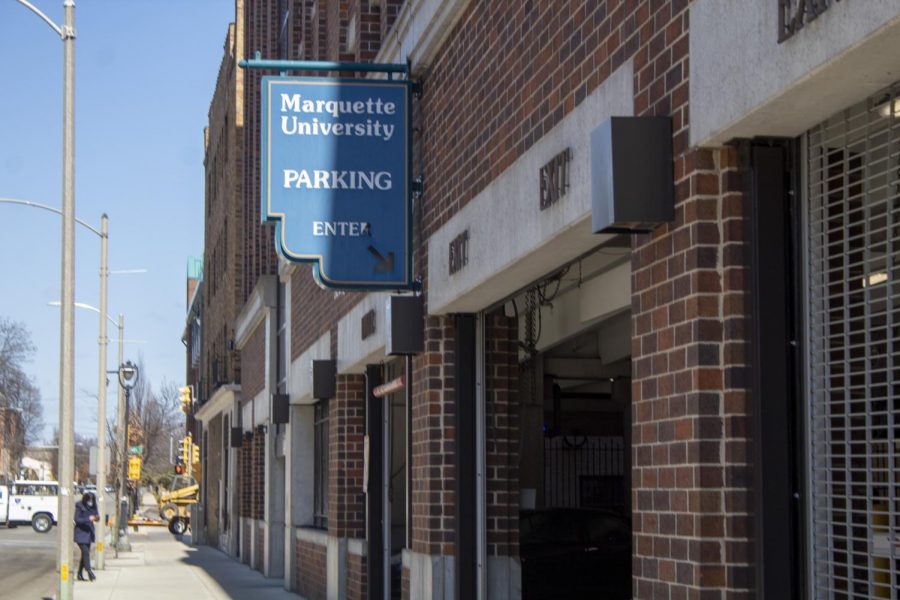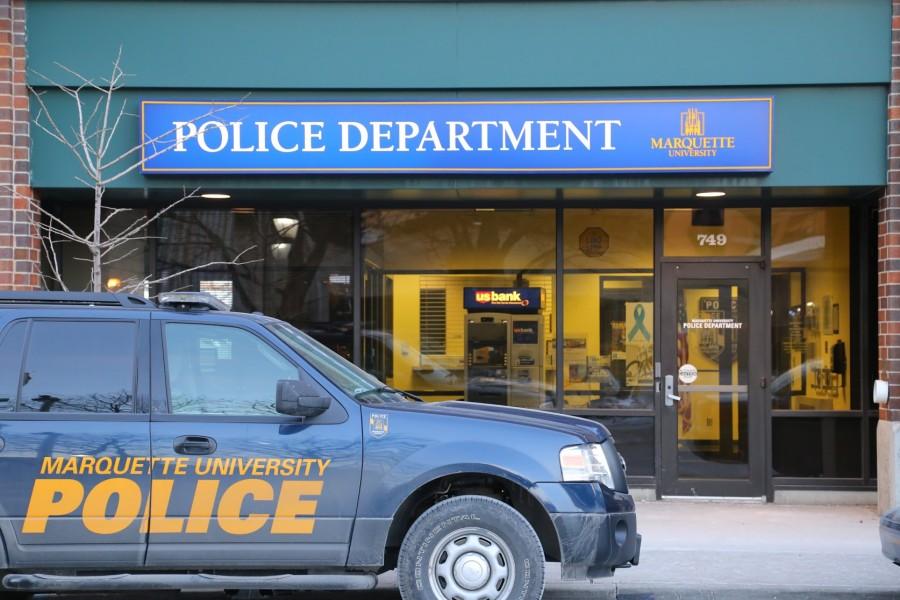Similar to students living on campus, commuters and those living at home have also had to adapt to a new format of school amid COVID-19.
Bennett Raasch, a sophomore in the College of Arts & Sciences who commutes from Wauwatosa — which is around 10-15 minutes away from campus — said using public transportation during the pandemic was challenging.
“It became less practical to take the bus because I could never know if it would be at full capacity on a given morning … meaning I could miss the opportunity to get down to campus on time,” Raasch said in an email.
The Milwaukee County Transit System buses have a maximum capacity of 15 passengers because of COVID-19 regulations.
Due to these restrictions, Raasch said he made the decision to purchase a commuter parking pass this year so he can drive to campus on his own schedule. A daytime commuter pass for summer 2021 is $132. Next semester’s price is not yet available on Marquette’s website.
Although Raasch now has more flexibility in travel plans, he said Marquette’s Mental Health Day activities aren’t geared as much towards commuters as it is “unrealistic” to head down to campus on these days.
According to Marquette’s website, Mental Health Days were implemented for the purpose of giving undergraduate and graduate students in certain programs the opportunity to “rest and recharge while also reducing unnecessary travel.” Marquette implemented these days after it eliminated spring break. Within these days, the university hosts a variety of in-person and virtual events for students.
The next Mental Health Day will take place April 20 and the final Mental Health Day is May 5.
Although online school gives students more flexibility in where they attend class, Raasch also said he continues to spend the same amount of time on campus as he did before COVID-19.
“I find it extremely difficult to take online classes from my home and need to head down to campus for my courses and to do schoolwork,” Raasch said in an email. “Commuting is about the same as before with the amount of time I spend on campus, but that is merely because I can’t focus as well at home compared to the library.”
Difficulty completing schoolwork at home is not exclusive to Raasch, as a 2020 report from MDPI showed that studying from home commonly requires greater self-discipline and motivation to follow through with online lessons for students in higher education.
“I am someone who learns better in person and can easily lose concentration during an online class, as I’m sure many students do,” Raasch said in an email.
Madisen Donovan, a sophomore in the College of Health Sciences who is living at home this year, said she also struggles in the newfound virtual environment.
“It has been much more difficult than I ever imagined,” Donovan said in an email. “I have always thrived in an in-person environment and now being so isolated and just watching voiceovers of professors is not the same.”
However, Donovan said she made the decision to stay home and attend all-virtual classes because it was a “better fit” for her this year.
“I thought it was the perfect opportunity to take advantage of the online learning and be able to make extra money,” Donovan said in an email. “But that definitely doesn’t mean that I like online learning.”
Ross Pendergast, a junior in the College of Business Administration who also commutes from Wauwatosa, said class difficulty has remained relatively the same with an online course load.
“The only difference I see is more activities to keep students engaged in class,” Pendergast said in an email. “This has definitely led to more time spent on classwork.”
Pendergast also said that online classes have made his commute from Wauwatosa easier.
“I don’t have to plan as much to make it to class on time as a lot of my classes are online a few days a week,” Pendergast said in an email.
Although virtual class has made Pendergast’s commute easier, he said he is hoping campus returns to normal next year while still allowing hybrid or online classes for students who don’t feel comfortable or are at risk for COVID-19.
This story was written by Claire Drislcol. She can be reached at claire.driscol@marquette.edu









